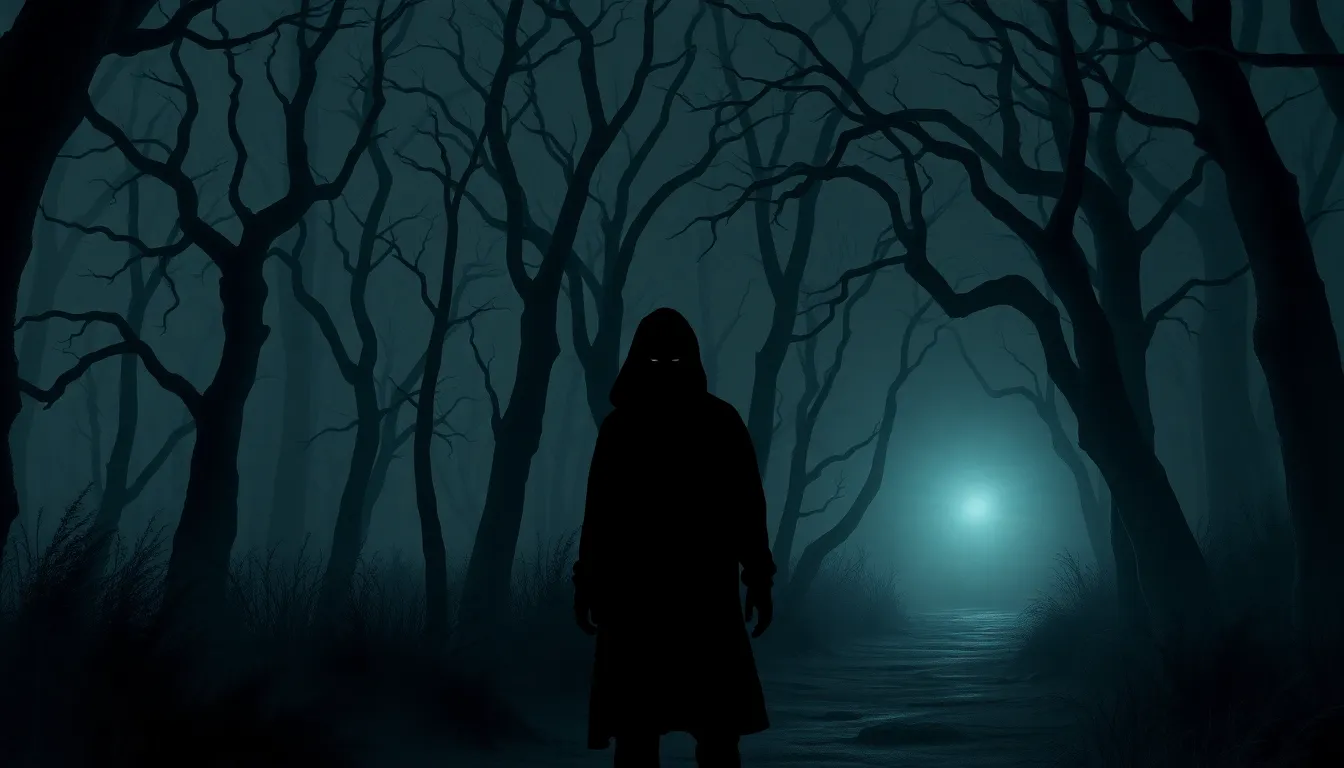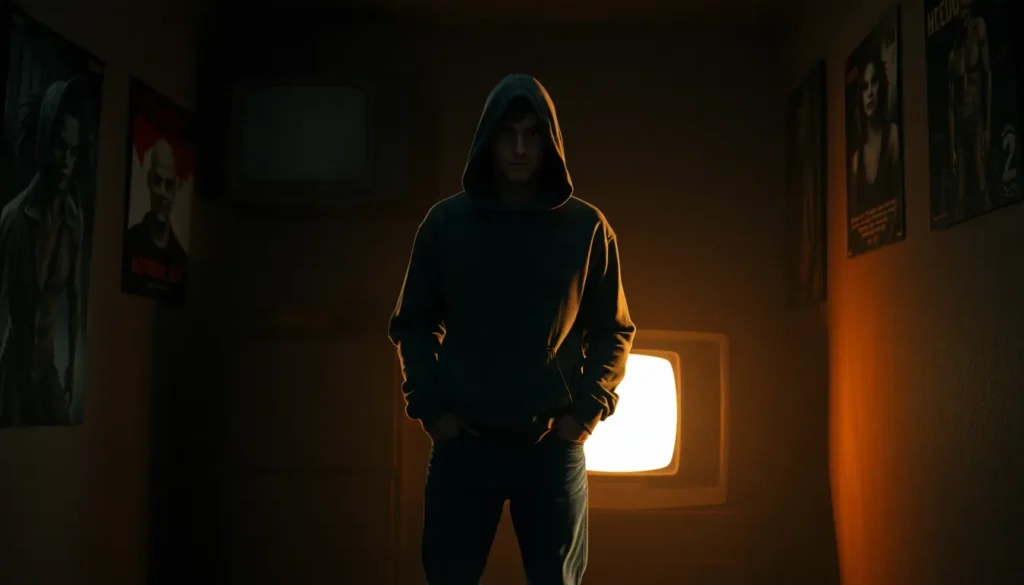Table of Contents
ToggleWhen it comes to horror games, there’s a genre for every kind of scare-seeker. Whether you’re the brave soul who laughs in the face of danger or the one who jumps at their own shadow, horror games offer a thrilling escape into the unknown. From spine-chilling survival horrors to psychological thrillers that mess with your mind, the variety is as vast as the dark corners of a haunted house.
Picture this: you’re deep in a creepy forest, the moonlight barely breaking through the twisted branches, and suddenly, the sound of footsteps sends shivers down your spine. That’s the magic of horror gaming. It’s not just about the scares; it’s about the adrenaline rush, the suspense, and those moments when you question your life choices. Let’s dive into the fascinating world of horror game genres and discover what makes each one uniquely terrifying.
Overview of Horror Game Genres
Horror game genres present a wide array of experiences designed to evoke fear and tension. Survival horror features limited resources and tough challenges that force players to strategize. Classic examples include “Resident Evil” and “Silent Hill.”
Psychological horror delves into the mind, manipulating reality and creating an atmosphere of dread. Games like “Amnesia: The Dark Descent” and “Layers of Fear” exemplify this genre’s focus on psychological terror.
Action horror combines fast-paced gameplay with horror elements, delivering thrilling combat. Titles such as “Dead Space” and “The Evil Within” showcase this blend of adrenaline and fear.
Adventure horror emphasizes narrative and exploration, allowing players to unravel dark stories. Games like “Until Dawn” and “The Night of the Rabbit” rely less on jump scares and more on character-driven stories.
Slasher games frequently feature a killer pursuing players, creating a high-stakes scenario. “Friday the 13th: The Game” and “Dead by Daylight” illustrate this genre with competitive elements.
Monster horror incorporates grotesque creatures that challenge player survival instincts. “Outlast” and “Resident Evil 7: Biohazard” highlight gruesome antagonists that instill fear through encounters.
Lastly, indie horror has gained prominence because of innovative narratives and unique mechanics. Independent titles like “Little Nightmares” and “Bendy and the Ink Machine” often provide fresh takes on traditional horror conventions.
Each genre engages players differently, ensuring a rich landscape for horror gaming enthusiasts.
Psychological Horror

Psychological horror focuses on manipulating the mind to evoke fear. It emphasizes atmosphere, suspense, and emotional distress over physical threats.
Key Features
Immersive storytelling drives psychological horror, engaging players on a deeper level. Unpredictable narratives keep participants on edge, as twists often challenge their perceptions of reality. Anxiety-inducing soundscapes amplify tension, creating an unsettling experience. Furthermore, characters may face inner demons, highlighting personal struggles rather than external monsters. Loneliness and isolation often contribute to the feeling of dread, forcing players to confront their fears in haunting environments.
Notable Titles
“Amnesia: The Dark Descent” typifies psychological horror with its eerie atmosphere and disturbing themes. Players navigate a realm filled with nightmarish creatures while managing their character’s sanity. “Silent Hill 2” explores complex psychological narratives, making it a landmark title in the genre. “Layers of Fear” immerses players in a collapsing mind, blending art and insanity into a chilling experience. Each title showcases unique elements that enhance the psychological horror experience, keeping gamers captivated and terrified.
Survival Horror
Survival horror engages players with tension-filled scenarios where resource management and strategic thinking play significant roles. Limited supplies and constant threats create an environment ripe for fear and suspense.
Gameplay Mechanics
Resource scarcity defines survival horror. Players must manage health, ammunition, and items carefully while facing relentless danger. Environmental puzzles often add complexity, requiring keen observation and problem-solving skills. Unique enemy behaviors challenge players, forcing them to adapt tactics on-the-fly. Fear escalates through atmosphere, with sound design and visuals amplifying tension. Exploration often rewards players with items, encouraging a sense of vulnerability intertwined with empowerment.
Iconic Examples
“Resident Evil” revolutionized survival horror with its fixed camera angles, intricate puzzles, and memorable foes like the Tyrant. “Silent Hill” left players unsettled through its fog-shrouded streets and psychological themes, creating a lingering sense of dread. “Amnesia: The Dark Descent” drew attention for its focus on fear of the unknown, making players feel helpless in the dark. Less mainstream titles like “Outlast” gained recognition for their aunique gameplay through unarmed stealth mechanics, where survival hinges on evasion rather than confrontation. Each game showcases unique elements, solidifying their place in the survival horror canon.
Action Horror
Action horror blends intense gameplay with elements of terror, immersing players in adrenaline-fueled experiences. Players encounter relentless foes while navigating disturbing environments, enhancing the overall fear factor.
Fast-Paced Elements
Rapid movement and quick decision-making define action horror. Players often face hordes of enemies, requiring swift reflexes and combat skills. Gamers encounter high-stakes situations that demand rapid solutions, adding to the tension. Strategic gameplay combined with frantic pacing makes for heart-pounding sequences. Transitioning through unpredictable landscapes amplifies the thrill, as each encounter becomes a test of survival. This genre merges horror with action, providing a unique experience that captivates players.
Popular Franchises
Several franchises exemplify action horror, attracting dedicated fanbases. “Resident Evil” leads the charge, fusing combat with survival elements. Gamers choose between diverse characters and navigate through harrowing scenarios. “Dead Space” delivers a chilling narrative that revolves around isolation and grotesque creatures. The combination of compelling storytelling and terrifying encounters draws players into a haunting experience. “The Evil Within” further enhances the genre with psychological elements alongside relentless action. These franchises showcase the versatility of action horror, appealing to those seeking thrills and chills.
Adventure Horror
Adventure horror immerses players in intricate narratives and encourages exploration. This genre provides a captivating blend of storytelling and suspense, often placing focus on the development of characters and their choices.
Narrative-Driven Experiences
Narrative-driven experiences engage players through compelling storylines that evoke emotion. Games in this category highlight character relationships and moral dilemmas, enhancing player immersion. Choices made during gameplay can lead to multiple endings, adding replayability. Titles like “Until Dawn” exemplify how character-driven plots create tension and suspense.
Essential Games
Several games exemplify the essence of adventure horror. “Until Dawn” offers a gripping tale of survival with player-driven decisions shaping the outcome. “The Walking Dead,” inspired by the comic series, focuses on emotional storytelling and character development. Another noteworthy title, “Firewatch,” combines exploration with psychological elements, drawing players into its haunting atmosphere. Each of these titles underscores the impact of narrative in adventure horror.
The world of horror games offers a rich tapestry of experiences that cater to a wide range of players. Each genre presents its unique approach to fear and suspense, whether through psychological manipulation or adrenaline-pumping action.
As players delve into survival horror they face resource management challenges that heighten tension. Psychological horror draws them into unsettling narratives that linger long after the game ends. Action horror delivers fast-paced thrills while adventure horror immerses them in compelling stories.
With indie titles pushing boundaries and redefining horror conventions the genre continues to evolve. The diverse offerings ensure that every gamer can find their perfect fright, making horror gaming an enduring and captivating experience.




